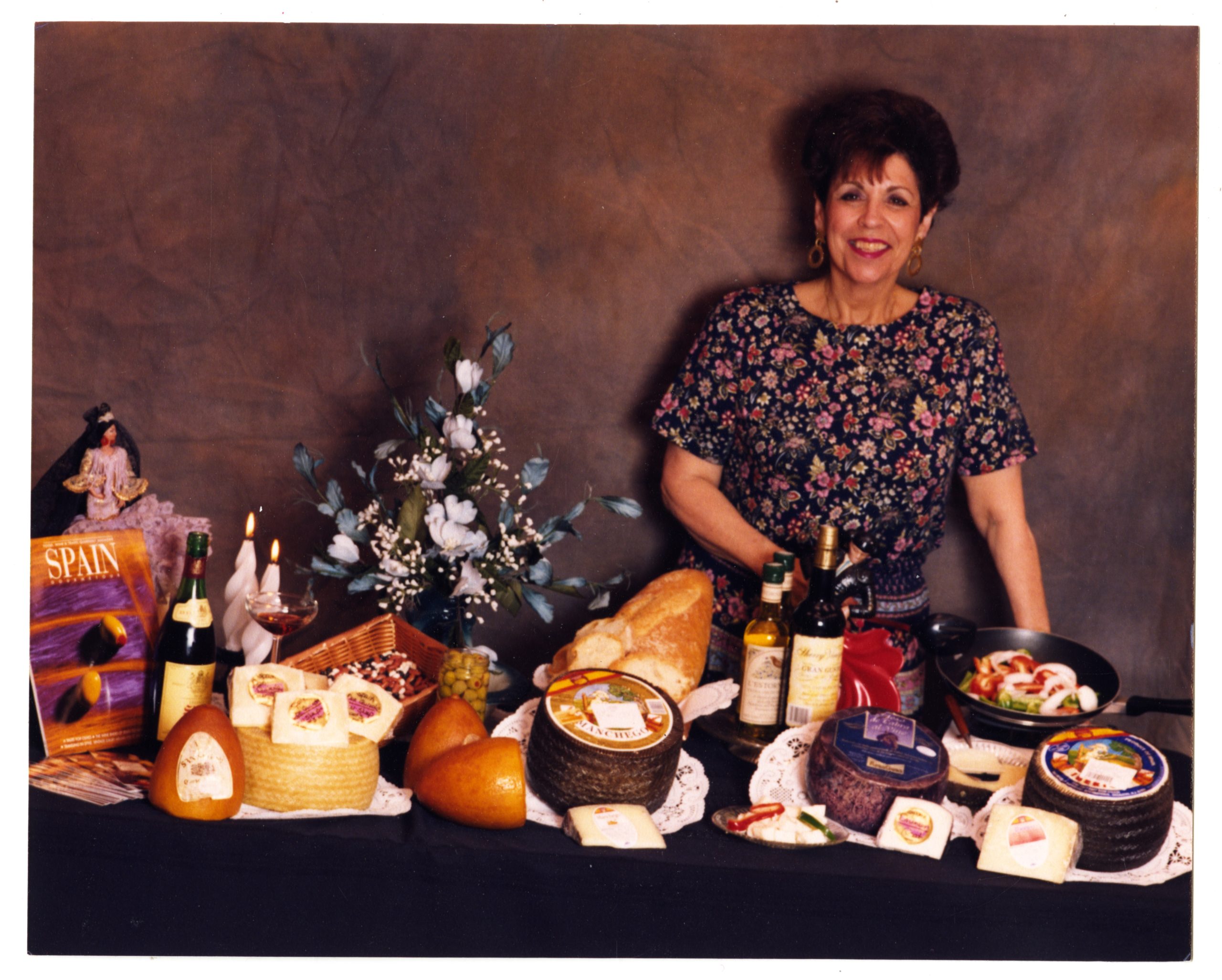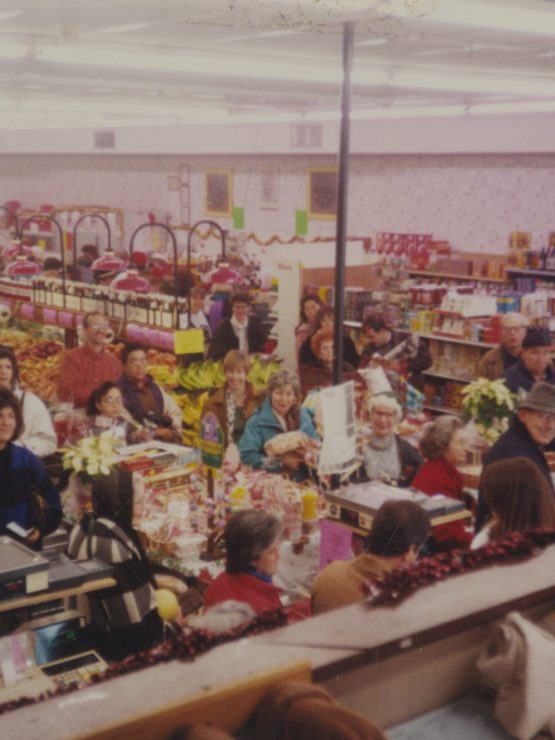Local businesses become part of the fabric of a community, especially those related to food and groceries. Customers sample new products, exchange recipes, and pick up ingredients needed for cherished family traditions, year after year. Such places aren’t just part of the community, they create their own community.
The History Center has long been interested in collections that document local businesses. When the McGinnis Sisters Special Food Stores announced that they were closing in 2019, we reached out and began working with the family to preserve artifacts, documents, photographs, and a wealth of audio-visual material that told the story of a business that was a mainstay of the South Hills and Monroeville and expanded into the North Hills during more than 70 years of operation. While part of their story appeared elsewhere on our blog, a fuller picture emerged this past year, when a History Center virtual program featured a discussion with multiple generations of the family.
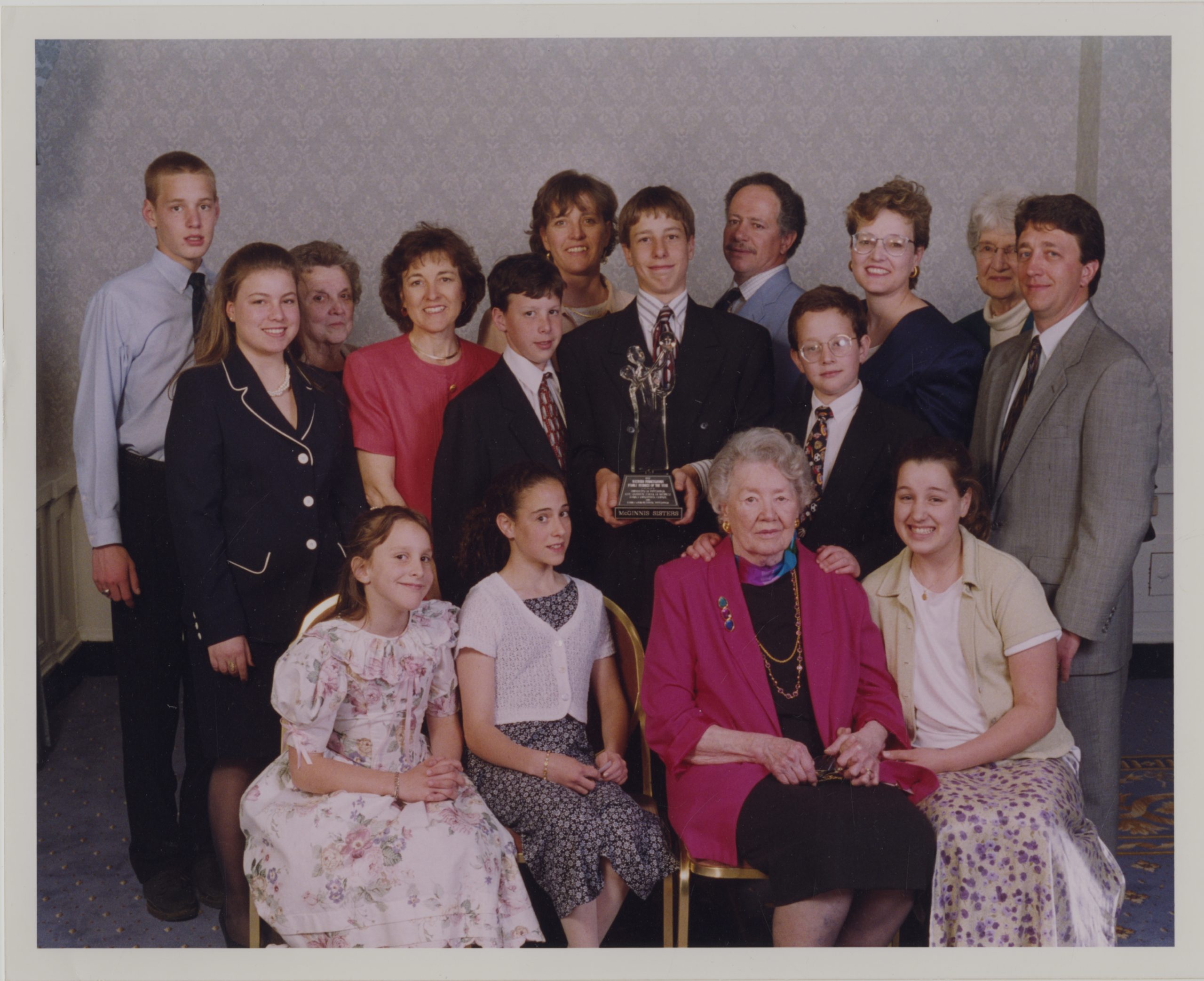
A Mother’s Story Takes Center Stage
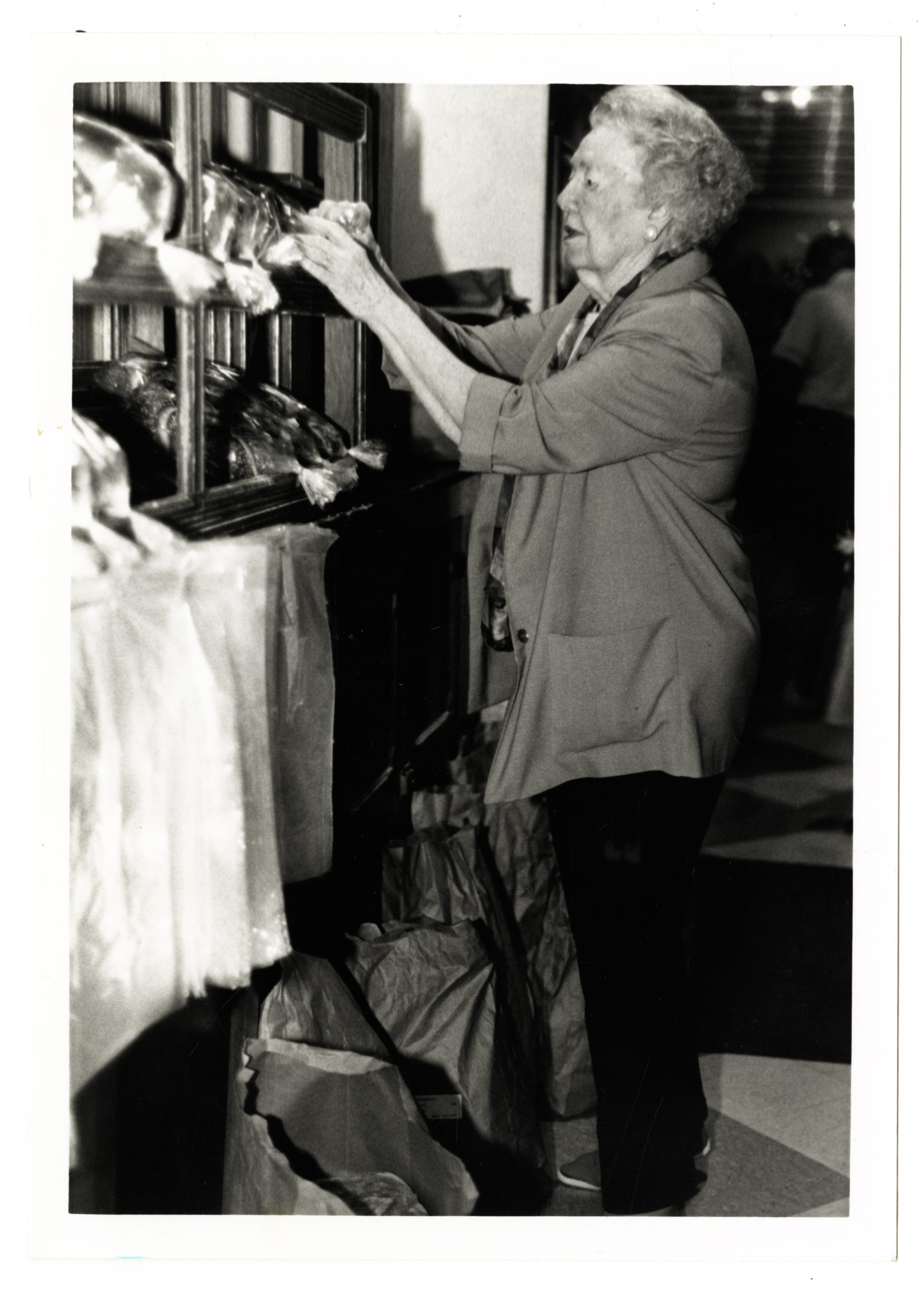
While the story of the McGinnis Sisters—Bonnie McGinnis Vello, Noreen McGinnis Campbell, and Sharon McGinnis Young—has long been praised as an example of women business leaders working together to carry a family operation to new heights, the role played by their mother, Rosella Gardill McGinnis, in the start of the business has not always gotten the attention it deserved. The story typically focused on family patriarch Elwood, and his decision in 1946, faced with a lack of jobs after World War II, to start a fruit and produce stand in Baldwin. But that decision was a leap of faith for both members of the young couple, who had two small children and a third on the way. As Rosella remembered in a video clip from WTAE’s “Pittsburgh’s Talking” show with host Ann Devlin around 1990, when Elwood first suggested opening a fruit stand, the family had no experience in the grocery business. Rosella recalled that she looked at him and thought, “Well, he doesn’t know a banana from an orange.”
But they did open that stand, with about $1,200 (the equivalent of about $17,000 today) and a lot of hard work. On the day the store opened in December 1946, Rosella stopped by to do a quality check on the produce and then proceeded to the hospital to deliver the couple’s third child while Elwood stayed behind. That pattern would be repeated multiple times; the McGinnis family eventually welcomed eight childrenIn those early days, Rosella continued to do quality control checks on the fruit and vegetables they offered. She was more knowledgeable and taught Elwood how to recognize and select the freshest and ripest produce. Their story isn’t just a reminder of the resolve needed to start a new business. It evoked the changes reshaping American society in the postwar years of the late 1940s. Veterans and new young couples faced a world in transition. The contraction of wartime defense production made jobs scarcer just as the first wave of the baby boom emerged, prompted by young men and women moving forward with lives put on hold during World War II.
From Mother to Daughters
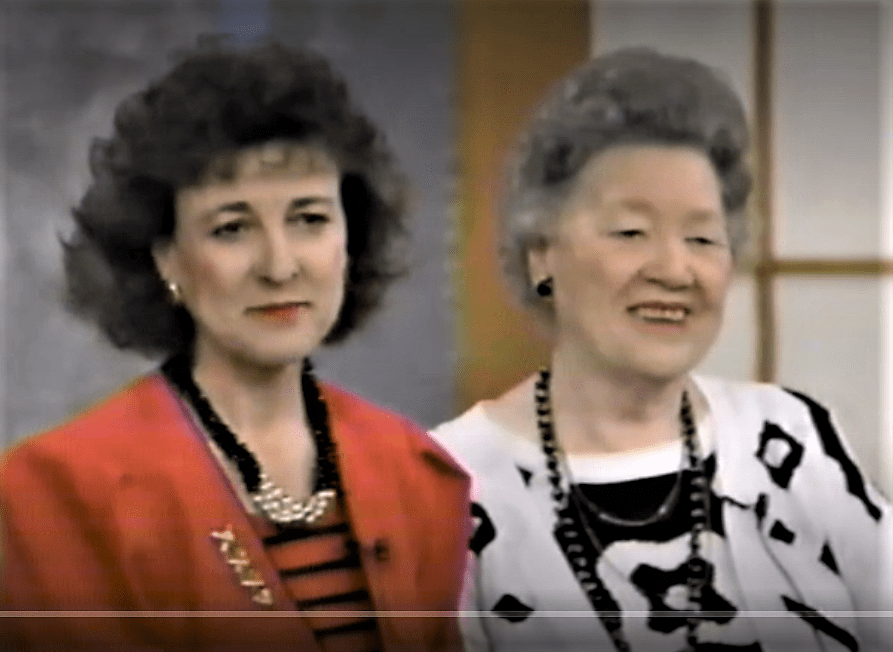
Rosella and Elwood persevered, expanding to three stores, the McGinnis Country Deli & Farm Markets. Many of the deli’s recipes came straight from Rosella. She previously made food for her family’s tavern in Baldwin. In the early years, she developed recipes for the beloved McGinnis roster of salads such as German potato salad and macaroni salad in her own kitchen before hand-carrying them to the store, about two blocks away. The sisters also recalled that their mom had an amazing ability to taste and replicate a recipe, and they relied on the “Rosella taste test” to determine what foods and products passed muster to make it onto the store’s shelves. That ethos continued through the decades: if something wasn’t good enough to sell to Rosella, then it wasn’t good enough for the stores.
Rosella’s standard of excellence and work ethic carried on in her daughters when they took over the stores in 1981. Elwood actually suggested that they change the name to the “McGinnis Sisters.” At the time, it was an unusual decision. Although historically women have long been involved in the grocery and restaurant business, their role, as illustrated by Rosella’s experience, was typically behind-the-scenes, crucial but unheralded. They were rarely viewed in a leadership role. Rebranding the markets as “The McGinnis Sisters Special Food Stores” put a new generation of women front and center.
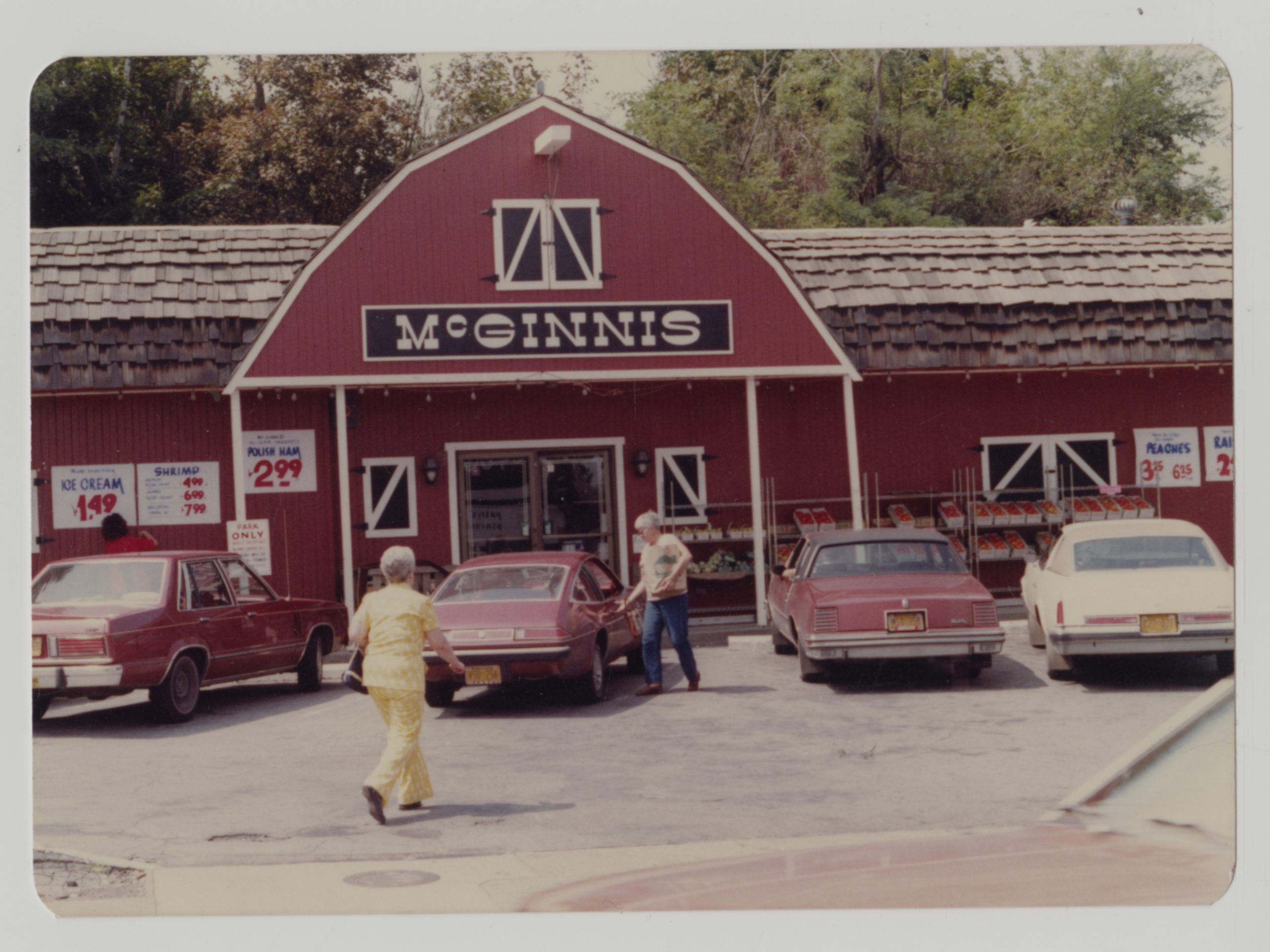
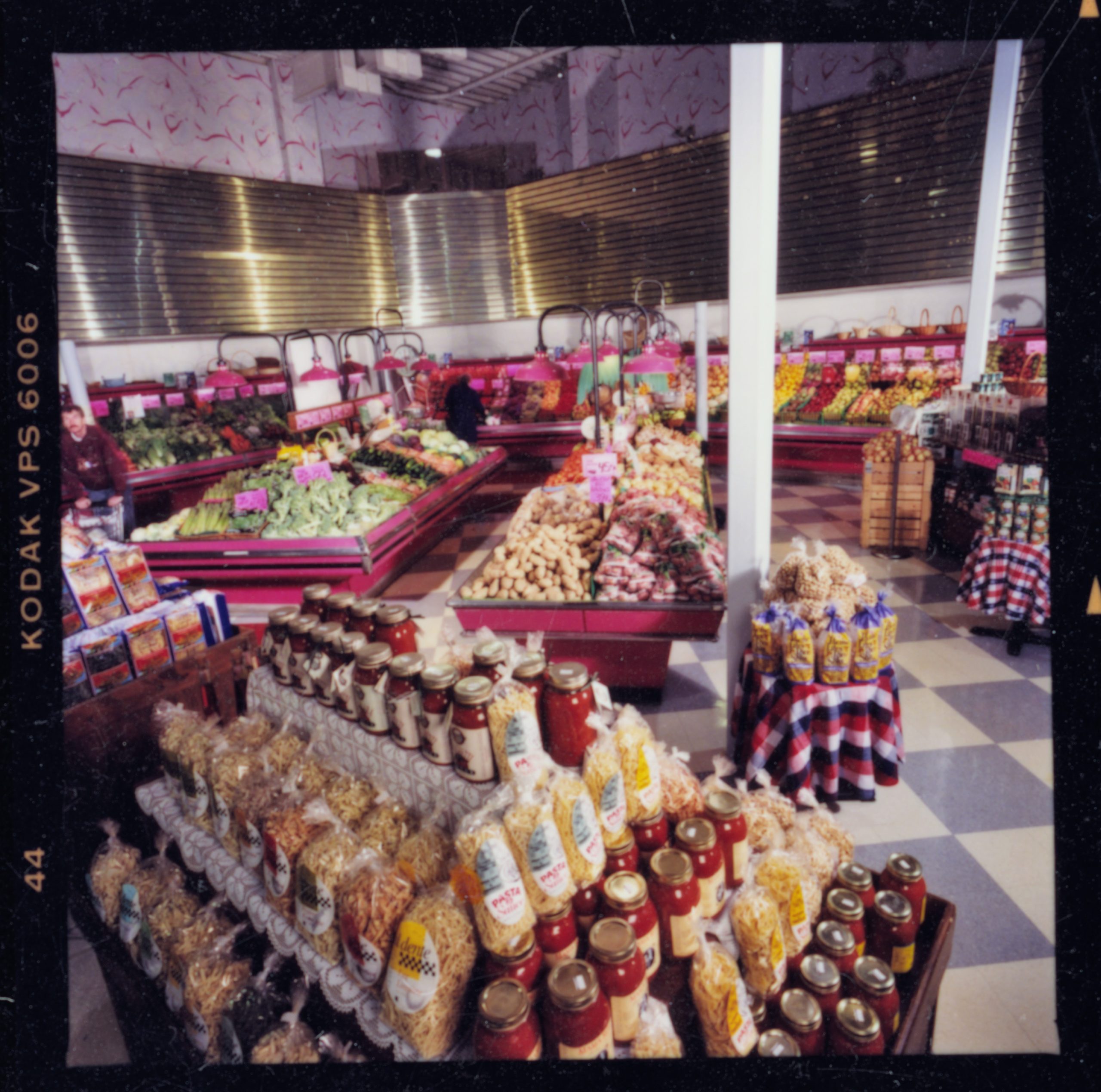
The McGinnis Sisters Rise
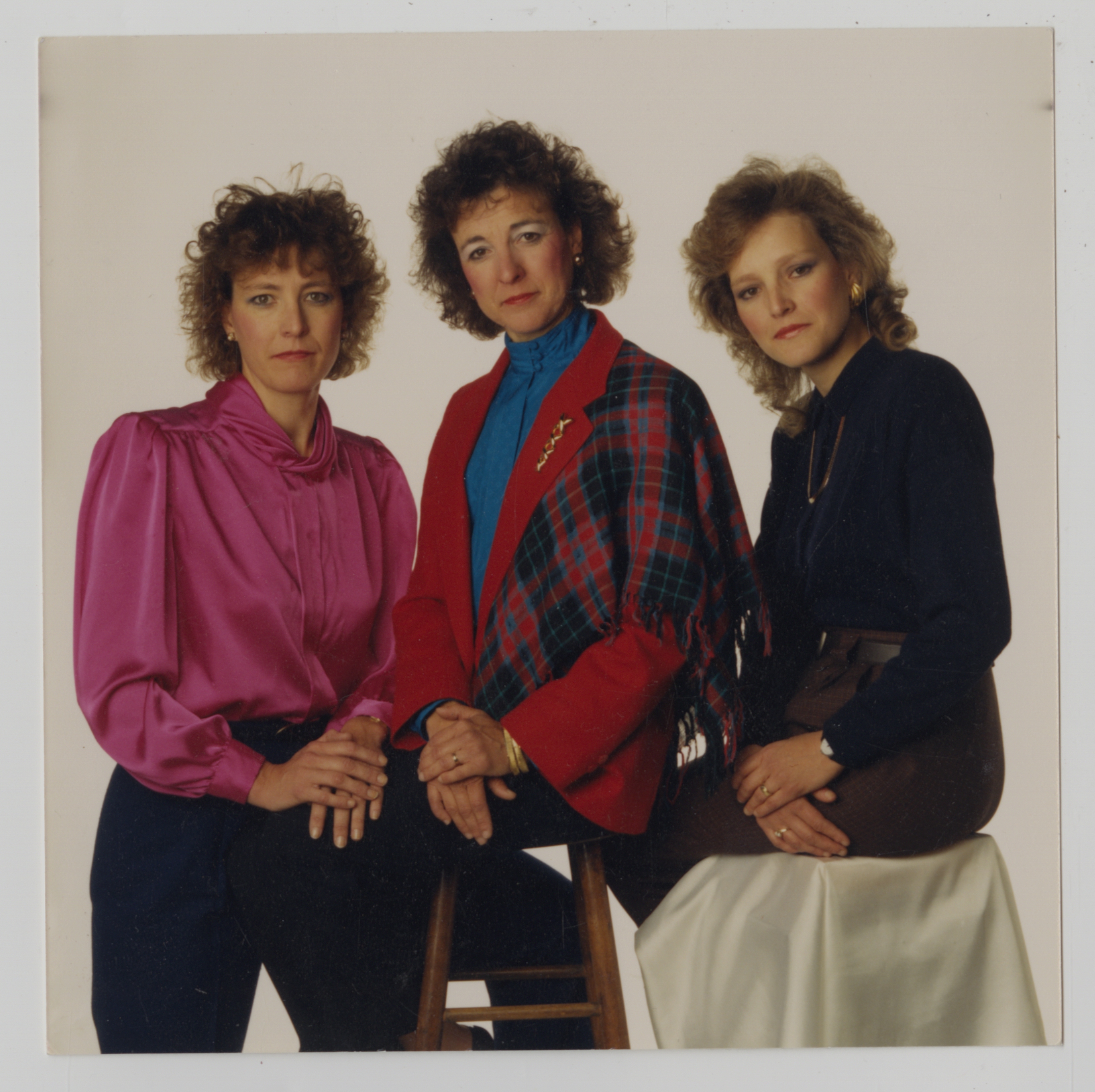
Three sisters–Sharon, Noreen, and Bonnie–eventually became the key leadership team, embracing their roles as women and sisters to create a distinctive brand focused on gourmet and international, organic, and locally-sourced foods and great customer service. They also became prominent media figures, bringing the stores a higher brand profile through television commercials and other appearances, such as the feature on “Pittsburgh’s Talking.” They earned numerous awards, balancing tradition and family while responding to new consumer trends in a constantly changing industry. They developed gift baskets, emphasized the stories of their food suppliers, and tested new color palettes and store interiors designed to appeal to female customers. Over time, locations were changed and added. A larger store on Route 51 / Saw Mill Run Boulevard replaced the smaller South Hills stores, and a new Monroeville store added in the 1990s became a keystone of their business. A new market also opened in the northern suburbs of Adams Township in 2008, and a new generation was brought into the operation.
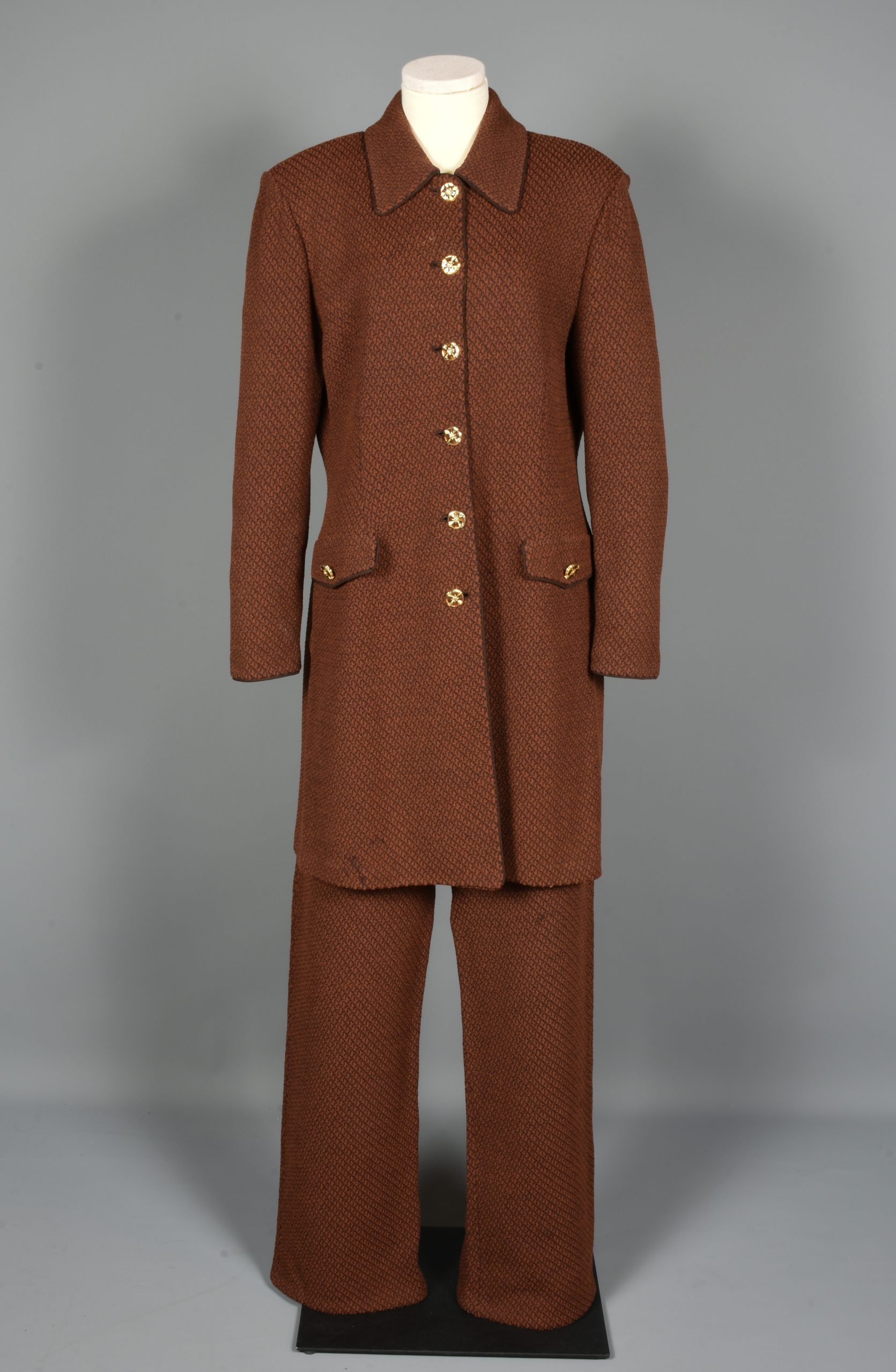
Although it wasn’t obvious in 1981, in some ways, the timing of that original transition couldn’t have been more perfect. From the late 1980s into the 1990s, a new wave of “girl power” awareness and women’s efforts at equality was underway, and the McGinnis Sisters projected an image of collective brand leadership that fit well with the times. They played into that strength, often appearing together in advertisements and store promotions, creating an identity distinct from other Pittsburgh chains. The sense of community fostered by the stores was notable too. Some longtime employees, such as food demonstrator Raye Coffey, were such fixtures that their work with McGinnis Sisters was even mentioned in her obituary.
There is much for scholars to mine from this collection. Today, the History Center is fortunate to have been entrusted with this heritage, preserving the family’s story and making their collections available for future researchers. The McGinnis Sisters Special Food Stores Collection is one of many important women’s history collections that we house, reminding us that the work of countless women such as Rosella, her daughters, and their daughters, are part of the history that has shaped Pittsburgh too.

